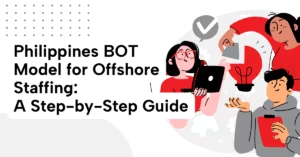The rapid pace of digital transformation is pushing more companies to explore outsourced marketing solutions. However, not all outsourcing partnerships deliver the expected results or meet performance standards.
When you entrust your brand’s digital presence to external experts, recognizing key red flags early on can help you avoid costly mistakes and disappointment in the long run.
Choosing the wrong marketing partner can quickly drain your budget, while delivering minimal or no measurable results. This is an outcome that no business can afford.
In this comprehensive guide, we will explore five critical red flags to watch for when outsourcing your digital marketing efforts. By understanding these warning signs, you’ll be able to make smarter, more informed decisions that protect your marketing investment and ensure long-term success.

Red Flag #1: Lack of Specialized Expertise and Industry Knowledge
Why Outsourced Marketing Fails: Lack of Specialized Expertise
A major reason outsourced marketing partnerships fail is the lack of specialized expertise. Many agencies claim to be “full-service,” but they specialize in just one or two areas. This limits their ability to understand the unique challenges of your industry’s digital landscape.
How to Identify This Red Flag:
When evaluating outsourced marketing partners, look deeper than surface-level claims. Ask about their experience and request case studies showing results for businesses like yours.
A true expert in digital marketing will:
- Speak confidently about industry-specific challenges in digital channels.
- Share relevant case studies with measurable digital results.
- Discuss trends and strategies tailored to your digital market.
- Ask insightful questions about your business’s digital goals.
Warning sign: If an agency responds with vague answers or defaults to general digital marketing principles when asked about specific expertise, proceed with caution.
Many businesses prioritize specialized expertise when outsourcing marketing services. However, they often realize too late that their partner lacks deep, industry-specific knowledge. This can lead to missed opportunities and unsatisfactory results. Be sure to thoroughly vet agencies to ensure they truly understand your unique challenges and market needs.
Digital Marketing Knowledge Assessment Questions
“What experience do you have in our digital marketing industry?”
- Green Flag Response: Specific examples with measurable results in your digital sector.
- Red Flag Response: “We work with all industries.”
“How would you approach our specific digital marketing challenges?”
- Green Flag Response: Tailored digital strategies with industry-specific insights.
- Red Flag Response: Generic marketing approach.
“Can you share case studies from our digital sector?”
- Green Flag Response: Relevant digital marketing case studies with clear, measurable results.
- Red Flag Response: Examples from unrelated industries.
“What digital marketing publications or resources do you follow?”
- Green Flag Response: Names specific, relevant digital marketing sources.
- Red Flag Response: Vague or general marketing sources.
“How do you stay current with digital marketing trends?”
- Green Flag Response: Specific professional development activities, like certifications or webinars.
- Red Flag Response: “We keep up with all marketing trends.”
Before signing with an outsourced marketing agency, verify their claimed expertise by checking client testimonials, case studies, and even reaching out to past clients if possible.
Red Flag #2: Poor Communication Practices and Responsiveness
Identifying an Outsourced Marketing Agency with Communication Issues
In digital marketing, communication gaps lead to missed deadlines, poor performance, and wasted ad spend. Clarity and responsiveness are essential. So, if an outsourced marketing agency already struggles to communicate during sales, expect things to decline once you’re under contract.
Communication Red Flags to Watch For:
- Slow response times
If they take over 48 hours to reply early on, don’t expect urgency when campaigns are live.
- Vague strategy explanations
Avoid agencies that can’t clearly explain timelines, targeting methods, or digital tactics when asked direct questions.
- Jargon without context
Fancy terms like “funnel optimization” mean nothing unless tied to a clear plan that benefits your specific goals.
- Lack of active listening
If they talk over you or push templated services, they’re not trying to understand your business needs.
- No reporting process
A good agency should explain how often you’ll get updates and who will send reports on performance.
- Missed follow-ups
If they promise a proposal or next steps and don’t deliver, expect worse delays later.
- No designated contact person
You should have a clear point of contact who owns your campaigns and keeps you informed regularly.
According to a study, 86% of workplace failures come from poor communication. That includes outsourced marketing relationships.
Signs of a Strong Communicator in Digital Marketing:
- Replies to emails or messages within 24 hours, especially during onboarding and setup phases.
- Clearly explains digital plans without overwhelming you with unnecessary terms or confusing processes.
- Asks about your goals and adjusts strategies based on your input, not just their standard service list.
- Comes prepared to meetings with basic research on your brand, competitors, and industry context.
- Responds positively to feedback and takes responsibility for results instead of blaming algorithms or platforms.
- Sends consistent updates and campaign reports weekly or biweekly, without being asked.
- Assigns you one main contact who tracks performance, deadlines, and strategic adjustments.
Don’t Skip the Video Call: Before hiring marketers, schedule a video call. Watch how they speak, listen, and explain your digital strategy.
Strong communication from the start helps build campaigns that actually convert and a partnership that doesn’t waste your time.
Red Flag #3: Absence of Clear Processes and Reporting
Quality Outsourced Marketing Services Always Include Clear Processes
In digital marketing, clear processes and reporting are essential. Without them, your campaigns risk delays, confusion, and wasted budget. If an outsourced marketing agency can’t explain how they work or report, that’s a red flag you shouldn’t ignore.
Process Red Flags to Watch For:
A study found that 62% of businesses have stopped or considered stopping their collaboration with marketing agencies that lack transparency. This frustration often comes from agencies with unclear workflows and poor reporting that leave clients confused and out of the loop.
What Quality Outsourced Digital Marketing Services Should Include:
- A structured onboarding process that aligns goals, tools, and timelines from the start
- A defined execution plan covering SEO, PPC, social media, or email strategies
- A consistent content calendar and approval process to avoid confusion and delays
- A clear reporting schedule with weekly, bi-weekly, or monthly performance updates
- Open communication via platforms like Slack, Trello, or Google Workspace
- Quality checks on ads, copy, landing pages, and analytics to ensure accuracy
A strong digital agency can explain audience targeting, budget pacing, campaign testing, and reporting using real tools and examples.
Digital Marketing Reporting: What to Expect vs. What to Question
When reviewing reporting practices, watch for these key indicators of quality and transparency:
Reporting Frequency
- Green Flag: Reports delivered on a schedule, weekly or monthly
- Red Flag: “We’ll send updates when something happens”
Metrics Tracked
- Green Flag: KPIs like ROAS, CTR, lead volume, or CPC
- Red Flag: Only vanity metrics like likes or reach
Report Format
- Green Flag: Dashboards from tools like Looker Studio or HubSpot
- Red Flag: Overly technical reports without summaries
Insights and Recommendations
- Green Flag: Actionable insights with next steps for better results
- Red Flag: Raw numbers with no context or strategy
Data Accessibility
- Green Flag: Real-time dashboard access or shared analytics logins
- Red Flag: Reports only shared upon request
The outsourcing hiring process should include reviewing sample reports from the agency. This gives you insight into how they communicate results and whether their reporting aligns with your needs.
Good reporting in outsourced marketing isn’t just about accountability. It helps refine campaigns, test strategies, and grow results consistently. Choose a digital marketing partner who doesn’t just report numbers but explains them and uses them to move you forward.
Red Flag #4: Unrealistic Promises and Pricing Structures
Hiring Marketers Who Make Unrealistic Promises: A Major Red Flag
When hiring marketers through outsourced marketing, be cautious of agencies that guarantee fast, extraordinary results without effort. Digital marketing success requires strategy, testing, data, and time—it doesn’t happen overnight.
Red Flags in Digital Marketing Promises:
- Guaranteed Google rankings
No agency can promise top search results. Google’s algorithm is constantly evolving and influenced by many unpredictable factors.
- Overpromising viral social media growth
Organic social media growth takes time. Agencies using bots or spam can damage your brand’s trust and credibility.
- Super cheap ad management offers
Extremely low ad management rates likely skip important work like testing, targeting, and optimization, leading to wasted ad budgets.
- No clear analytics or tracking plan
If they can’t explain how results are measured, they probably don’t have a data-driven strategy to begin with.
- No discussion of strategy upfront
Jumping straight into tactics like posts or ads without planning means they’re likely using a cookie-cutter approach.
- Avoiding clarity on contracts or deliverables
Reliable digital marketers clearly outline monthly outputs, like SEO reports, ad campaigns, blog content, or social schedules.
A major warning sign in outsourced marketing is promising success before understanding your business goals.
Common Digital Marketing Pricing Models and What to Watch For
When outsourcing digital marketing, understand how each pricing model works and know what red flags to look out for.
Hourly Rate
- Pros: You pay only for hours worked. Ideal for flexibility or short-term needs.
- Cons: Can become costly if poorly managed.
- Red Flag: Very low hourly rates could mean junior talent or lack of oversight.
Retainer-Based
- Pros: Predictable monthly billing with dedicated agency support.
- Cons: You might pay for hours you don’t fully use.
- Red Flag: No breakdown of monthly deliverables or vague “consulting time.”
Project-Based
- Pros: Fixed fee and scope for specific tasks like a site audit or campaign build.
- Cons: May exclude long-term optimization or reporting.
- Red Flag: Rock-bottom prices that exclude testing or revisions.
Performance-Based
- Pros: Agencies get paid for results like leads or conversions, aligning with your goals.
- Cons: They may chase vanity metrics instead of building long-term value.
- Red Flag: Promising ROI or lead numbers before reviewing your sales funnel or audience.
In outsourced marketing, avoid cheap pricing and unrealistic promises. Instead, look for marketers who offer clear deliverables, honest goals, and measurable progress. Focus on transparency, data, and long-term growth when hiring marketers to support your digital strategy.
Red Flag #5: Cultural Misalignment and Integration Issues
The Outsourcing Hiring Process Must Include Cultural Assessment
When doing outsourced marketing, cultural fit matters as much as skills. Without it, even the best strategies can fall short. The outsourcing hiring process should include cultural assessment, not just portfolio reviews. It ensures smoother collaboration and protects your brand identity.
Cultural Misalignment Red Flags in Digital Marketing
- Different communication styles
You prefer fast, clear collaboration. They’re formal or slow to respond. That gap can derail campaigns and delay results.
- Mismatched creative work ethics
Your brand needs agility. If they resist change, miss details, or deliver inconsistently, your messaging will miss the mark.
- Conflicting brand values
They speak for your brand online. If their values don’t align, they may misrepresent your tone or mission publicly.
- Resistance to creative feedback
Digital marketing evolves quickly. If feedback is ignored or deflected, you’ll struggle to optimize and grow your campaigns.
- Lack of excitement for your brand
An agency that seems bored early on won’t bring fresh energy or passion to your content, ads, or strategy.
Cultural Fit Questions to Ask a Digital Marketing Agency
Communication Style: How do you typically communicate with clients?
- Red flag: Unclear processes, delayed replies, or styles that clash with yours
Values: What are your agency’s core values, and how do they guide your work?
- Red flag: No clear values, or values that don’t reflect your brand
Work Ethic: How do you handle tight deadlines or last-minute campaign changes?
- Red flag: Resistance to change, inflexibility, or lack of accountability
Innovation: How do you stay current with digital marketing trends and tools?
- Red flag: Outdated methods, vague answers, or fear of trying new platforms
Client Relationship: How do you view your role in campaign success?
- Red flag: They see it as transactional, not collaborative
Before investing in outsourced marketing, ask if the agency’s culture matches yours. That match often defines success.
Related post: Mastering Typography in Web Design: A Comprehensive Guide

How to Protect Yourself: Effective Vetting Strategies for Outsourced Digital Marketing
When outsourcing digital marketing work, ensuring the right agency or provider is critical to success. Here are effective vetting strategies to help you safeguard your business and maximize your return on investment in outsourced marketing.
1. Develop a Comprehensive Vetting Process
Create a structured process to evaluate agencies for digital marketing work. Include these critical components:
- Initial research: Check online reviews, reputation, and overall presence across platforms like Clutch, Google, and Trustpilot.
- Review case studies: Verify their experience in your industry with measurable digital marketing successes and campaigns.
- Assess expertise: Ensure they specialize in SEO, PPC, social media, email marketing, or content creation.
- Evaluate communication: Test their responsiveness and clarity throughout the vetting process.
- Analyze tools and reports: Ensure they use data-driven platforms for accurate and actionable marketing reports.
- Cultural alignment: Make sure they align with your company’s creative vision and collaboration style.
2. Request and Contact References
Ask for and reach out to references provided by the agency. Inquire about their experience with digital marketing:
- How did their strategies impact ROI and lead generation?
- What challenges did they overcome and how?
- Was their communication transparent and efficient throughout the project?
3. Start with a Small, Measurable Project
- Begin with a small, low-risk project like a short PPC or content campaign. It helps assess their capabilities:
- Evaluate their strategic approach to digital marketing campaigns.
- Test their ability to meet deadlines and adjust to feedback.
- Measure the ROI of their efforts using clear, tangible metrics.
4. Establish Clear Digital Marketing Expectations
Set clear expectations for all campaigns to ensure alignment. Document:
- Deliverables, timelines, and success metrics for every digital project.
- Reporting frequency and communication protocols.
- Success metrics, like traffic growth, lead generation, or ROI, that you both agree on.
5. Trust Your Instincts
If something feels off during the vetting process, trust your gut. Digital marketing requires collaboration and alignment. Don’t ignore:
- Misalignments in creativity or communication.
- Any signs of inconsistency or a lack of professionalism.
6. Ask About Data Ownership and Exit Clauses
Clearly define data ownership in the contract. Specify:
- Who owns all digital marketing data, such as leads, customer insights, and campaign metrics.
- Exit terms, including asset transfer and data ownership if the relationship ends.
7. Check for Legal and Compliance Knowledge
Ensure the agency follows digital marketing regulations and is compliant with all applicable laws. Ask about:
- Compliance with privacy laws, such as GDPR or CCPA.
- Ad platform regulations for Facebook, Google Ads, or others.
- Their understanding of data protection for digital marketing campaigns.
- If you’re hiring remote marketers in different countries, check out an Employer of Record (EOR) provider to help you handle local hiring, compliance, and contracts with ease.
Making Smarter Outsourced Marketing Choices
Outsourcing your digital marketing is a significant decision. The right outsourced marketing partner can fuel growth and bring expertise. While the wrong partner may waste your budget and damage your brand. Avoid that risk by being mindful of red flags.
Watch for five red flags: lack of expertise, poor communication, unclear processes, unrealistic promises, and cultural misalignment.
Successful outsourced marketing relationships rely on transparency, communication, and mutual respect. Take the time to thoroughly vet partners. Don’t rush the decision. Your digital marketing strategy is too important to trust to the wrong hands.
Frequently Asked Questions (FAQs)
Q1: How long should the vetting process take when outsourcing digital marketing?
The vetting process typically takes 2-4 weeks for thorough evaluation. This includes initial research, interviews, reference checks, and proposal review. While it might seem lengthy, this investment of time protects you from costly mistakes. Rush the process, and you risk missing critical red flags that could lead to partnership failure.
Q2: What questions should I ask when checking an agency’s references?
When checking references, ask about communication style, responsiveness to feedback, ability to meet deadlines, and how they handle challenges. Also inquire about results achieved, whether the reference would hire them again, and any advice they’d give to new clients. These questions provide insights beyond what the agency will tell you directly.
Q3: Is it better to hire a specialized agency or a full-service agency?
This depends on your specific needs. Specialized agencies typically offer deeper expertise in their focus area but may require you to manage multiple partners. Full-service agencies provide convenience but may not excel in all areas. Consider your internal resources for managing partners and which marketing functions are most critical to your success.
Q4: How can I verify an agency’s claimed expertise?
Verify expertise by reviewing case studies with measurable results, asking technical questions specific to your needs, checking employee LinkedIn profiles for relevant experience, and speaking with past clients in your industry. Also consider requesting a paid trial project before committing to a long-term contract.
Q5: What are reasonable expectations for results when outsourcing digital marketing?
Reasonable expectations depend on your starting point, industry, competition, and budget. Generally, expect 3-6 months before seeing significant results from SEO efforts, 1-3 months for paid advertising campaigns, and 2-4 months for content marketing initiatives. Be wary of agencies promising dramatic results in very short timeframes.
Q6: What is outsourcing marketing?
Outsourcing marketing refers to hiring an external agency or team to manage and execute your company’s marketing efforts. This can include tasks such as social media management, content creation, digital advertising, SEO, and more. It allows businesses to leverage specialized expertise without building an in-house marketing team.
Q7: Is it a good idea to outsource marketing?
Outsourcing marketing can be a great idea for businesses looking to access expert skills, reduce costs, and focus on their core activities. It provides flexibility and scalability, especially for companies that don’t have the resources or time to manage marketing efforts internally. However, it’s important to choose a reliable partner aligned with your brand’s goals.
Q8: What is the job description of outsource marketing?
Outsource marketing professionals are responsible for developing and executing marketing strategies on behalf of a company. This includes tasks such as content creation, social media management, paid campaigns, brand building, and data analysis. They work closely with the business to ensure that marketing goals are met while maintaining consistency in messaging and customer engagement.
When hiring outsourced marketing teams, it’s important to watch out for red flags such as lack of transparency, poor communication, or unrealistic promises. Many businesses fall into the trap of hiring based on low costs, only to find that quality and results suffer. At CORE®, we offer access to a network of highly skilled Filipino digital marketers who bring expertise, creativity, and cost-effectiveness to your marketing strategies. By partnering with us, you’ll ensure that your marketing efforts are led by professionals who understand your goals and deliver results. Reach out to us!





